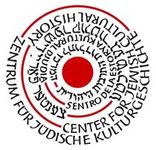אנתרופיה
Grammatical information: noun f.
Translation: artificial for woman
Translation equivalent: ἂνθρωπος(Ancient Greek+)
Usage:
Domain: human life/biology
Socio-cultural norm: code-switching
Normativity: ad-hoc formation
Meaning type: lit.
Frequency: hapax legomenon
לזאת יקרא אשה כי מאיש לקחה וגו' מיכן אתה למד שניתנה התורה בלשון הקודש, ר' פינחס ור' חלקיה בשם ר' סימון כשם שניתה בלשון הקודש כך נברא העולם בלשון הקודש, שמעת מימיך אומר גיני גיניה איתא איתתא אנתרופי אנתרופייא, גברא גברתא, אלא איש ואשה למה שהלשון הזה נופל על הלשון הזה.
18,4 [I 165: 1]
She shall be called woman (“ishah”), because she was taken out of man (“ish”) (Gen 2,23). From this you learn that the Torah was given in the Holy Tongue. R. Pinḥas and R. Ḥilqiyyh in R. Simon’s name said: Just as it was given in the Holy Tongue, so was the world created with the Holy Tongue. Have you ever heard on say “gini” “ginia”, “itaʾ”, “itetaʾ”, “anṭropi”, “anṭropia”, “gavraʾ”, “gavretaʾ”? But “ish” and “ishah” [are used]: why? Because one form corresponds to the other. (Freedman / Simon I 143)
גיני
גיניה
= Yalq 24 [8b: 60-61] (אנתרופיא)
עשה לך שרף לא נתפרש, ר' יודן בשם ר' אסי ישמע חכם ויוסיף לקח זה משה, אמר אם אעשה אותו שלזהב או שלכסף אין הלשון הזה נופל [על הלשון הזה] אלא הריני עושהו שלנחשת שהלשון הזה נופל [על הלשון הזה] נחש הנחשת, מיכן שניתנה תורה בלשון הקודש, ר' פינחס ורבי חזקיה מש' ר' סימון כשם שניתנה תורה בלשון קודש כך נברא העולם בלשון קודש, שמעת מימיך אומר גיני גינייה אנתרופי אנתרופייה, [נברא גברתא], אלא איש ואשה, למה שהלשון הזה נופל על הלשון הזה.
31,8 [I 281: 7]
The meaning of Make thee a fiery serpent (Num 21,8) is not clear. R. Yudan said in R. Assis name: The wise man may hear, and increase in learning (Prov 1,6) applies to Moses, who reasoned thus: If I make it of gold (“zahav”) or of silver (“kesef”), these words do not correspond to the other. Hence I will make it of neḥoshet (brass), since this word corresponds to the other, viz. neḥash neḥoshet – a serpent of brass (ib. 9): this proves that the Torah was given in Hebrew. R. Pinḥas and R. Ḥizqiyyah in R. Simon’s name said: Just as it was given in the Holy Tongue, so was the world created with the Holy Tongue. Have you ever heard on say “gini” “ginia”, “itaʾ”, “itetaʾ”, “anṭropi”, “anṭropia”, “gavraʾ”, “gavretaʾ”? But “ish” and “ishah” [are used]: why? Because one form corresponds to the other. (Freedman / Simon I 242; 143)
גיני
גינייה
= Yalq 52 [14a: 56] (אנתרופתא)
Cf. AC 163ab; Levy 116a, Krauss, LW II 76b; Jastrow 88b. Cf. גוניה, אנתרופי
Bibliography:
Sokoloff, DJPA, 43a.
How to cite: Art. אנתרופיה in: Dictionary of Loanwords in Rabbinic Literature. Eds. . https://lrl.acdh.oeaw.ac.at/antropiyah.html. 2024.



